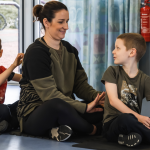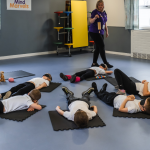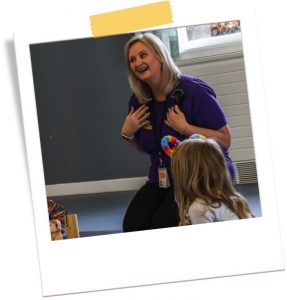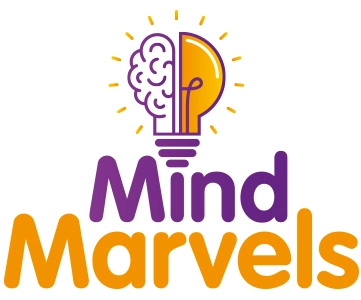
Building self-esteem in children
February 28, 2025
Stress symptoms in children: What to look for (and what you can do)
April 4, 2025We all want children to grow up with strong, happy relationships – but let’s face it, getting them to play nicely together can sometimes feel like negotiating world peace. One moment they’re best friends, the next they’re arguing over who gets the last red crayon (because obviously, red is the best). But teaching kids how to build positive relationships is one of the greatest gifts we can give them, helping them develop empathy, communication skills, and a sense of belonging.
Curious how Mind Marvels helps kids build friendships that don’t end over a game of musical chairs? Take a look at our wellbeing sessions here!
Why positive relationships matter for children
Children thrive when they feel connected to others – whether it’s their parents, friends, teachers, or even the neighbour’s overly friendly cat. Positive relationships help children develop confidence, resilience, and emotional intelligence. When kids learn to communicate, share, and resolve conflicts in a healthy way, they’re better prepared for all of life’s ups and downs (and yes, even future red crayon disputes!).
Through interactive wellbeing sessions, we help children develop the skills they need to build meaningful connections with those around them.
Activities to build positive relationships between children
1. The Compliment Train
No, this isn’t a new high-speed rail service—it’s a fun way to encourage kindness! Have children sit in a circle and take turns giving compliments to the person next to them. It’s amazing how a few kind words can boost confidence and strengthen friendships.
2. Teamwork Challenges
From building the tallest spaghetti-and-marshmallow tower to solving an escape room-style puzzle, teamwork activities help children learn cooperation, problem-solving, and patience (because someone will inevitably try to eat the marshmallows).
3. “Feelings Charades”
Instead of acting out movie titles, children take turns expressing different emotions using only facial expressions and body language while others guess what they’re feeling. This helps develop empathy and emotional awareness, plus, it’s hilarious watching kids try to act out ‘confused’ or ‘excited’ without making a sound!

Strengthening relationships at home
1. Family Storytelling Nights
Take turns adding a sentence to a made-up story—who knows where the adventure will go! This activity not only strengthens family bonds but also encourages listening skills and creativity.
2. The “Yes” Challenge
For one evening, parents agree to say “yes” (within reason!) to their child’s requests. This builds trust and connection while making children feel heard—just be prepared for some unexpected ideas (like having spaghetti for breakfast).
3. Gratitude Jars
Encourage children to write down things they appreciate about family members and pop them in a jar. Reading these notes together creates a warm, fuzzy feeling (and reminds siblings that they actually like each other!).
Encouraging positive relationships with parents and caregivers
1. Special One-on-One Time
Whether it’s a ten-minute chat before bed or a weekend adventure, dedicated time with a parent or caregiver strengthens a child’s sense of security and belonging. No distractions, just connection.
2. Cooking Together
Yes, it might get messy, but cooking a meal together is a fantastic way to bond, learn teamwork, and sneak in some life skills (because at some point, they’ll need to know how to make more than just toast).
3. “Switch Roles” Day
Let your child “be the parent” for a few hours. You might end up with some funny house rules, but it’s a great way to help them understand responsibility while sharing plenty of laughs!
Helping children build positive relationships every day
In our experience at Mind Marvels, we know that strong relationships form the foundation of a happy childhood. Through interactive wellbeing sessions, we help children develop the skills they need to build meaningful connections with those around them – whether that’s making friends at school, strengthening family bonds, or just learning to share the last red crayon without a meltdown.
Want to help your child make friends without the drama? Check out our wellbeing sessions here and give them the tools to handle everything from playground politics to sibling negotiations!
